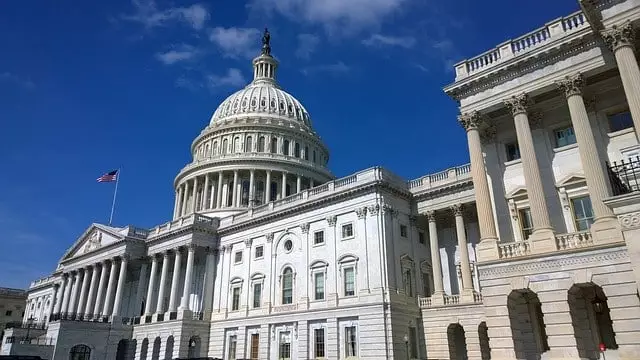In a significant victory for proponents of decentralized finance (DeFi), the U.S. House of Representatives has decisively nixed the IRS’s contentious broker rule through H.J. Res 25, capturing the attention of both crypto enthusiasts and skeptics alike. The resolution not only embodies bipartisan cooperation, with 292 lawmakers endorsing it against a backdrop of 132 votes in opposition, but it also represents a crucial moment in the ongoing battle between innovation and regulatory overreach. The stakes are not solely about taxation; they extend to the very future of financial freedom in a rapidly evolving digital landscape.
The IRS’s proposed broker rule would have imposed an extensive compliance framework on DeFi entities, forcing them to adhere to reporting requirements similar to those of traditional financial institutions. This initiative, ostensibly aimed at enhancing tax compliance, disregarded the fundamental essence of decentralized technology. Critics, including powerful VC firms like Andreessen Horowitz, voiced alarm, underscoring that such a regulatory pathway could stifle innovation and drive talent overseas. Neither the DeFi platforms nor the developers involved in this burgeoning sector have custody over users’ assets, making the IRS’s broad-brush approach not just misaligned but draconian.
Legislative Allies and Shifts in the Political Arena
The passage of H.J. Res 25 can be viewed as a shining example of how vital it is for legislators to recognize the significance of technological advancements on American soil. Spearheaded by figures like French Hill, the Chairman of the House Financial Services Committee, the move highlights a serious commitment to preserving American leadership in digital asset innovation. He characterized the broker rule as “government overreach,” a sentiment echoing throughout the halls of Congress and resonating with the broader population that values freedoms in financial transactions.
Interestingly, the resolution, which continues to build momentum as it shifts to the Senate following earlier support reflecting a 70 to 27 vote, shines a light on a crucial ideological pivot among lawmakers. It showcases that the fear of overregulation is no longer a fringe sentiment but rather a central consideration in legislative discussions about technology and finance. Some Democrats joined their Republican counterparts in recognizing the implications of stifling what could potentially be a $1 trillion industry—validation of the shared interest across party lines to cultivate an environment receptive to innovation.
A Complicated Landscape for Crypto Markets
While the resolution marks progress, it’s vital to maintain a critical perspective on the crypto market’s current state. Reports indicate that the digital asset market has faced considerable downturns, with Bitcoin, Ethereum, and other significant assets struggling in a volatile atmosphere. At the time of writing, Bitcoin had dipped to an alarming four-month low of under $77,000, raising concerns over the health of the broader crypto ecosystem. Despite some signs of recovery—BTC gaining about 1.1%, and XRP and Dogecoin climbing even higher—these numbers pale in comparison to the overall 10% loss the sector has seen over the past week.
This juxtaposition of regulatory advancements against the backdrop of market fragility poses complex questions for both investors and innovators in the crypto space. It suggests that while legislative action is necessary to protect innovation, the absence of robust market stability could undermine those very efforts. A thriving DeFi environment not only requires a cooperative regulatory framework but also a healthy market free from crippling volatilities that deter potential investors.
A Vision for Balanced Regulation
Advocates for DeFi and broader cryptocurrency ecosystems must remain vigilant as various stakeholders—governments, financial institutions, and the public—strive to define what responsible governance looks like in a tech-driven financial future. The call from the DeFi Education Fund for lawmakers to prioritize financial freedoms echoes a broader societal desire to reclaim control of personal and business transactions. To that end, a balance must be struck, one that invites innovation while ensuring accountability without suffocating creativity in its infancy.
As H.J. Res 25 moves closer to actualization, the ongoing dialogue about cryptocurrency regulation is more critical than ever. The challenge remains: how can we foster an atmosphere where innovation thrives while safeguarding against the pitfalls that come naturally with financial advancements? The stakes are high as we tread further into a world where decentralized finance could redefine how we view and manage money—let’s ensure we do it right.

